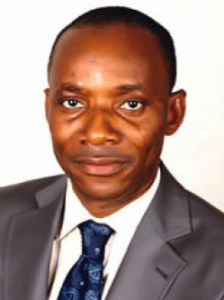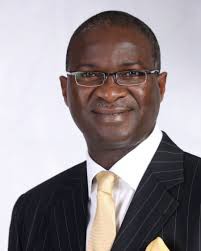Amidst the deteriorating economic climate, there is the concern that Nigerian electricity consumers will soon be paying higher tariff despite the abolition of the monthly N750 fixed charge by the National Electricity Regulatory Commission (NERC).
The concern grew from the fact that the Distribution Companies (DISCOs) would transfer the charge into the tariff component of electricity consumers, which could be increased arbitrarily, thus dashing the hope of numerous consumers who had thought that the abolition of the fixed charge would be a relief.
At the same time, the Minister of Power, Works and Housing, Mr. Babatunde Fashola, said the Federal Government may not provide subsidy to electricity consumers in rural communities either.
NERC said at the weekend that it would finally abolish the N750 fixed charge component in the Multi-Year Tariff Order (MYTO).

According to Dr. Sam Amadi, NERC Chairman, electricity fixed charge is a universal practice, which enables operators to recover the capital and fixed cost. Amadi said that scrapping electricity fixed charges may impact negatively on the market participants who have invested a lot and are continuously making investments in the industry.
However, the General Manager, North-South Power, owners of Shiroro Hydropower plant Eric Olo, said the abolition of fixed charge will impact negatively on consumers. According to him, “NERC’s action will have ripple effects on other elements of the tariff plan and the rest of the electricity value chain.
“Already, there is a shortfall due to collection losses and the pressure on the DISCOs to repay the loans they secured from commercial banks, meaning that the latest shortfall coming from the fixed charge freeze will be transferred to consumers in the form of increased energy tariffs.”
The situation is compounded by the pronouncement of Fashola that the possibility of providing some level of financial subsidy for electricity consumers in Nigeria’s rural communities remains uncertain due to limited finances.
Fashola who stated that the government was already considering recommendations on what would work in this regard, also said that the government would be pushing for more volumes of electricity to be generated into the national grid.
The federal government had from inception of the power sector privatisation programme, provided some pool of fund to subsidise electricity consumption by rural citizens of the country.
The measure was aimed at helping the new operators recover cost of distributing electricity to rural communities who would find it difficult to pay the cost-reflective bills given to them by the electricity distribution companies.
However, Fashola said: “It was necessary to privatise, no doubt. The previous administration has made some choices – not all those choices have worked, and not all those choices have been completed. Some require re-evaluation.
One of them is subsidy to the rural areas. Was it the best choice to make under the circumstance? Is there a subsidy in other services in the rural areas?













